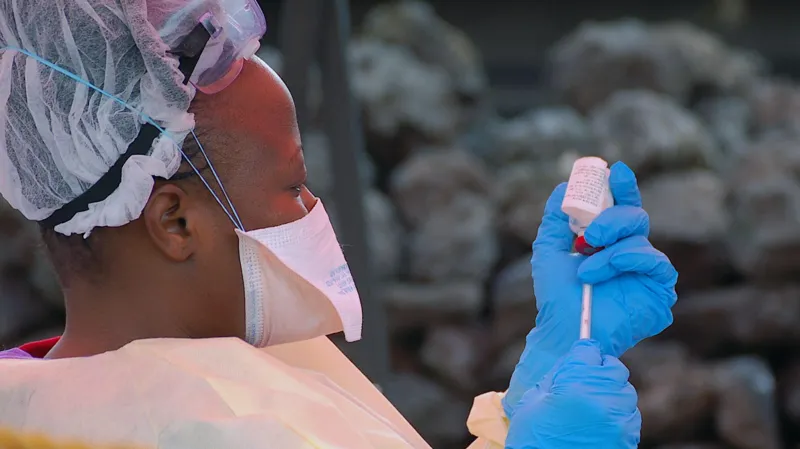Jay-Jay Okocha: Bundesliga can grow in Africa
The former Eintracht Frankfurt and Nigeria midfielder believes that the Bundesliga has opportunities to grow its imprint in the African market. However, many clubs still need to find ways to make it happen.

The Bundesliga needs to do more to win hearts and achieve growth in the African market, according to former Nigeria midfielder Austin 'Jay-Jay' Okocha.
"People didn't know how good the Bundesliga is because they failed for decades to market the Bundesliga [to Africa]", Okocha, who serves as an ambassador for Germany's top division, told DW during a media roundtable over the weekend.
This year marked 30 years since Okocha scored his famous goal of the season for Eintracht Frankfurt against Karlsruhe and their legendary goalkeeper, Oliver Kahn.
"I am delighted now that they have realized they must reach out because that is what the Premier League did.
"When it comes to entertainment and good football, the [Bundesliga] is up there. Because people didn't get to watch the Bundesliga week in and week out before, they didn't understand how good the Bundesliga is. But I'm really delighted now and happy to be part of reaching out to the market."
Okocha is part of a Bundesliga visit to Johannesburg this week, where the league will celebrate its 60th anniversary with events including match screenings. But the Bundesliga has yet to open an African office.
Bundesliga clubs don't understand Africa
According to the DFL, 22 African players currently play in the Bundesliga, and 53 others have connections to the continent through at least one of their parents. African players have been thriving in the Bundesliga since Ghana's Ibrahim Sunday made a 45-minute appearance for Werder Bremem in 1976.
But a visit by the DW to some Bundesliga clubs last weekend showed that many still have not committed to the African market.
Former Bundesliga champion Borussia Mönchengladbach has had many African players in its 123-year history. The club has set up academies in China and Singapore. Still, its sole outreach to Africa was the donation of the team's shirts to a children's club during a Bundesliga event in Nigeria.
"Right now, we are talking about touch points for different countries, and we are talking to several potential partners in Africa, but it has not come to the point that we can cooperate with them," Denise Pörtner, manager of global partnerships at Gladbach, told DW.
"The continent of Africa is a target for the Bundesliga, so it shows that it is really important for German football, and so we are thinking of how we can find a touch point for Africa," she said.
Current Bundesliga leader Bayer Leverkusen has five African players in their first team. Yet they don't have any academies in an African country.
"The business of sport is also finding good players," Simon Rolfes, the club's sporting director, told DW. "We are looking at the African market and players playing in Europe. We have a good scouting department, and they are checking the market, and I think Africa will become more and more important for this."
Fantastic opportunities
In April, Bundesliga giants Bayern Munich signed a five-year partnership with tourism group Visit Rwanda. Despite criticism in Germany, it showed opportunities in the African market beyond sporting talent.
"The African continent offers fantastic opportunities and, with the right strategy, many prospects and possibilities for Bundesliga clubs, regardless of the many talents that come from Africa," Sebastian Schächter, of sports consultancy Schächter Sports, told DW.
"However, building up the market environment and sufficient business opportunities in Africa requires time and perseverance for clubs. The return on investment is much faster in Asia or North America."
Schächter has represented third division side DSC Arminia Bielefeld in its partnership with South African second tier club, Maritzburg United. This relationship was built on the back of former South African national team players Delroy Buckley and Sibusiso Zuma, who once played for Bielefeld.
"With a long-term youth training program in Johannesburg, coach training measures, many CSR (corporate social responsibility) measures and cooperation with the Chamber of Foreign Trade of Southern Africa and Maritzburg United, DSC Arminia has succeeded in generating a sustainable and credible impact that has had an extremely positive effect on the brand and now offers great opportunities," said Schächter.
Okocha, and many in Africa, are waiting for Bundesliga clubs to follow suit.







